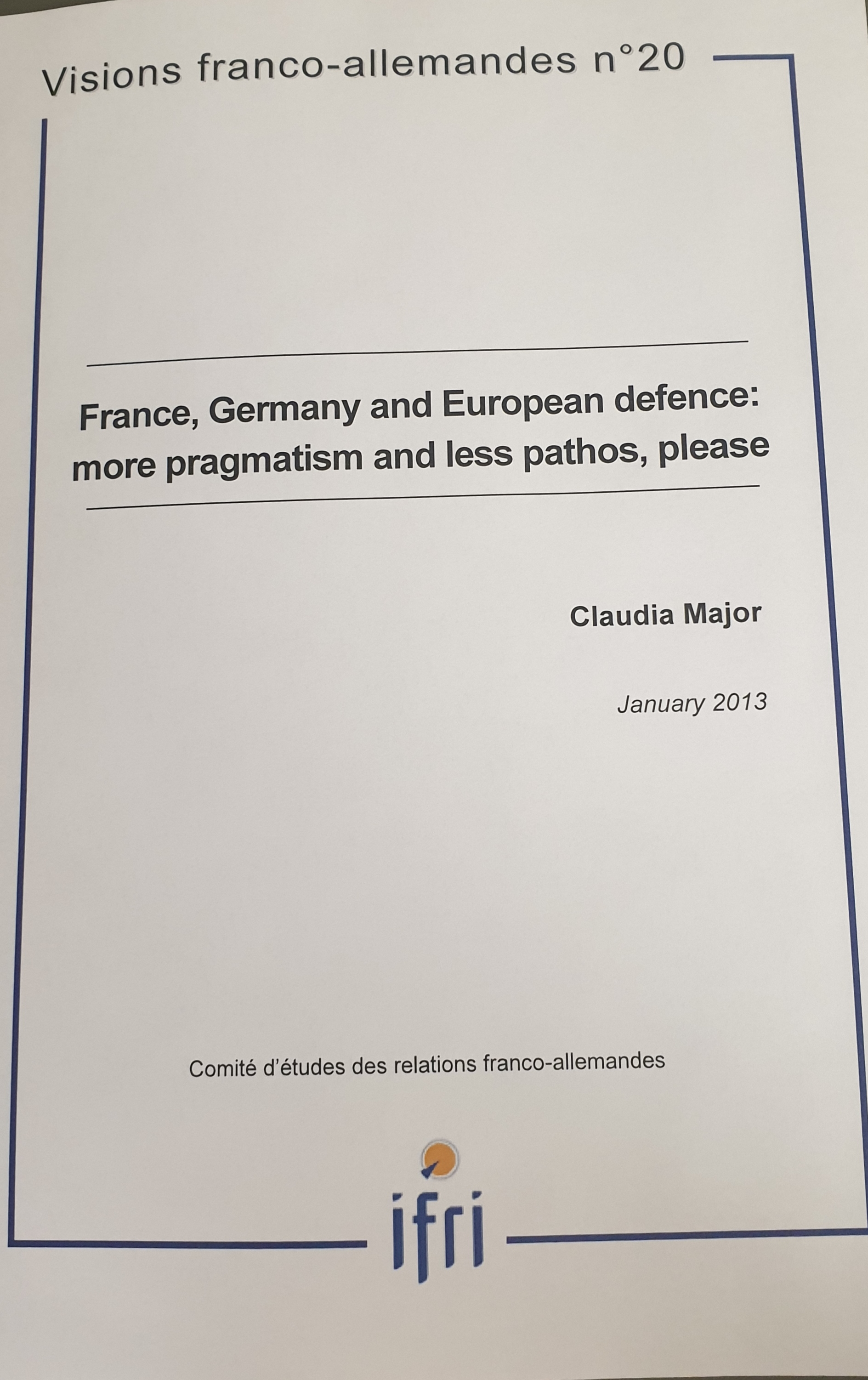France, Germany and European defence: more pragmatism and less pathos, please

At the time of the 50th anniversary celebrations of the Elysée treaty in January 2013, the Franco-German defence cooperation is not at its best.
Even though the bilateral cooperation is intense and has permitted various projects, it does not include all areas and still lacks efficiency. Misunderstandings persist and the network created so far between the two countries has not yet proved sufficient to overcome the differences. The disparities over strategic culture, ambitions on the international scene or the defence industry reveal different priorities of the two countries and, consequently, the agreements are often merely rhetoric. In addition to this, in the current context of economic crisis the two governments’ attention is focused elsewhere.
However, in the light of the international developments an improved cooperation seems inevitable. The shift in North Americas’ zone of interest towards Asia, and significant cuts in defence budgets in virtually of all European member states result in a considerable weakening of the Continents military capacities. Therefore, the bilateral cooperation is a necessity that has to be revived and improved. The author offers several propositions regarding the political, military and industrial sphere; for example, the creation of an investment pool, of a Franco-German Airwing, of a market place for surplus of military equipment and of regional capacity targets. The cooperation has to be consolidated within the European project in order to enable feasible projects that are mutually desired. This would allow Paris and Berlin but also Europe to maintain credible security and defence capacities.
Claudia Major is deputy head of the Research Division “International security policy” at the German Institute for International and Security Affairs (Stiftung Wissenschaft und Politik).
This publication is available in french: La France, l'Allemagne et la défense européenne : pour plus de pragmatisme et moins de pathos (pdf)

Available in:
Regions and themes
ISBN / ISSN
Share
Download the full analysis
This page contains only a summary of our work. If you would like to have access to all the information from our research on the subject, you can download the full version in PDF format.
France, Germany and European defence: more pragmatism and less pathos, please
Related centers and programs
Discover our other research centers and programsFind out more
Discover all our analyses
Securing critical raw material (CRM) value chains – a prerequisite for Europe’s technological resilience
At the heart of economic security, technological resilience is a backbone of the European Union’s (EU) competitiveness. The EU’s energy and digital transitions depend on critical raw materials (CRM).

Reconciling competitiveness and demographic change: a Franco-German imperative
France and Germany are facing parallel demographic shifts that could reshape the future of their economies and their social models. These shifts reflect broader European patterns but are magnified by the central role both nations play in EU governance and competitiveness.
Taking the Pulse: Does France's Political Crisis Weaken Europe's Geopolitical Hand?
While the EU tries to navigate a myriad international challenges, France is experiencing historic political disarray. What impact will instability in Paris have on Europe's geostrategic capacity?
Imaginary and Reality of the Franco-German border: a Laboratory for Europe of tomorrow
In Europe, the question of borders is a central issue. According to the European Parliament, border regions cover around 40% of the European Union (EU) territory, concentrate 30% of its population and produce nearly a third of its gross domestic product.







